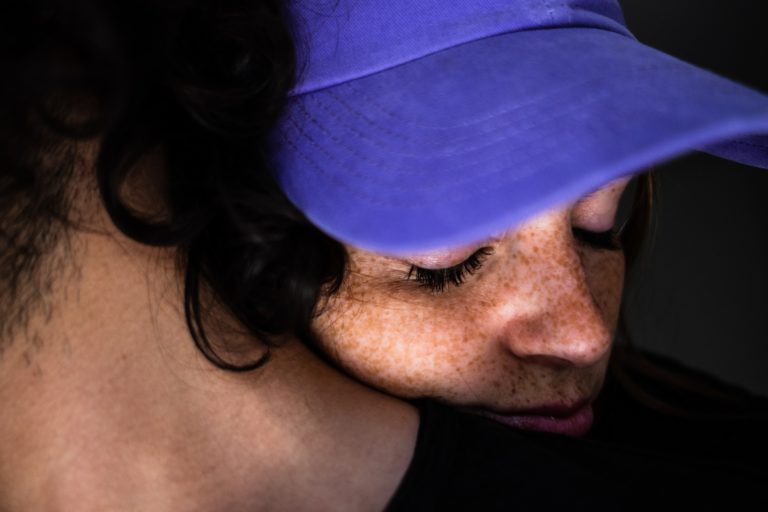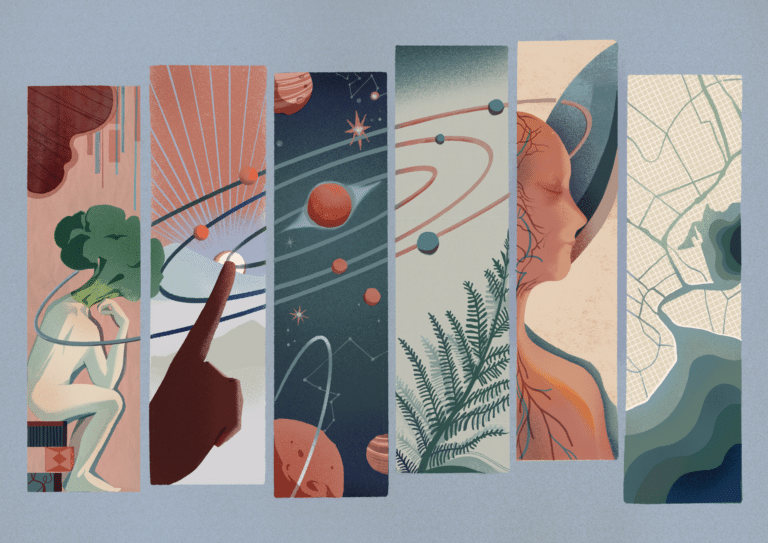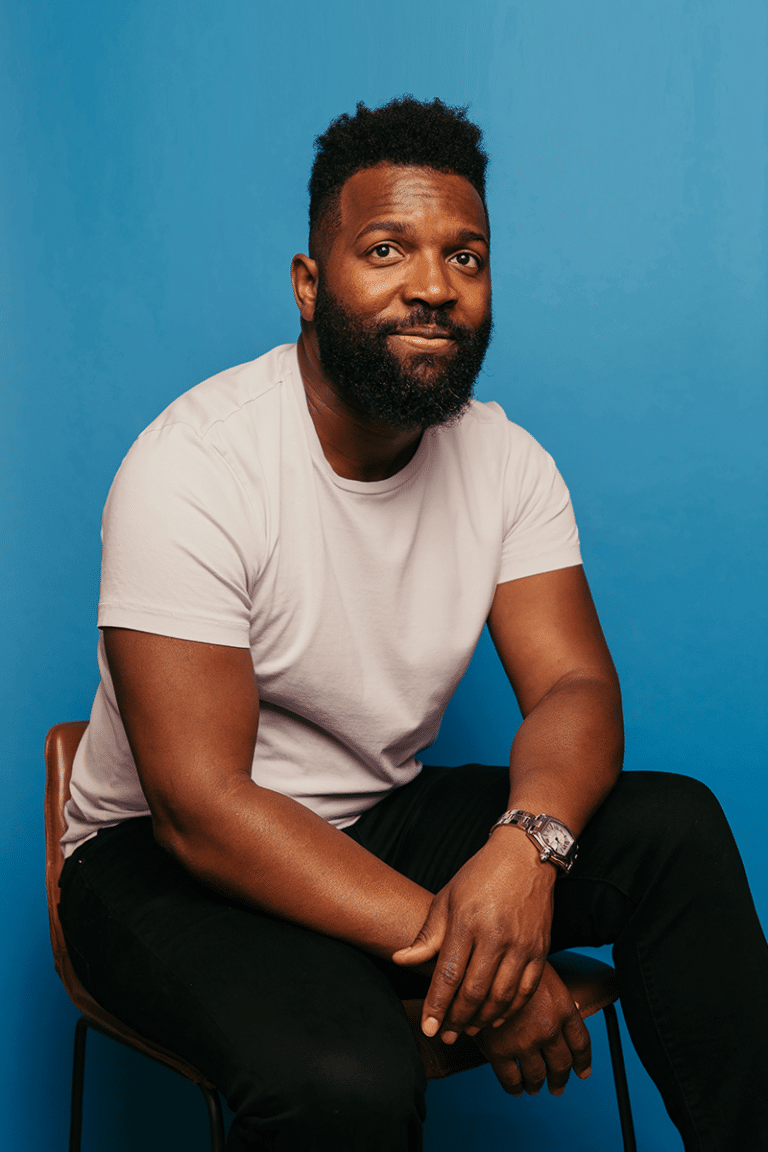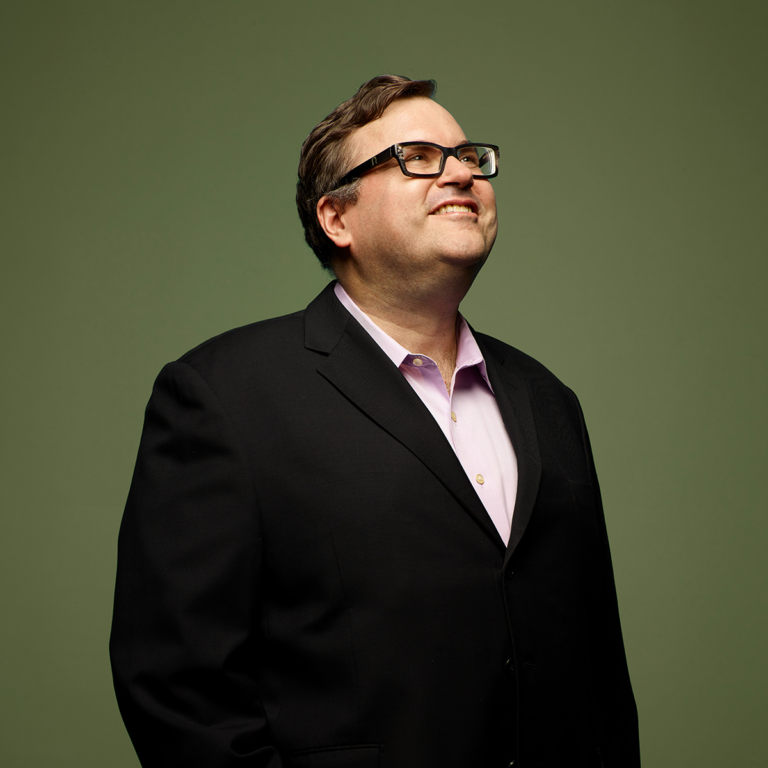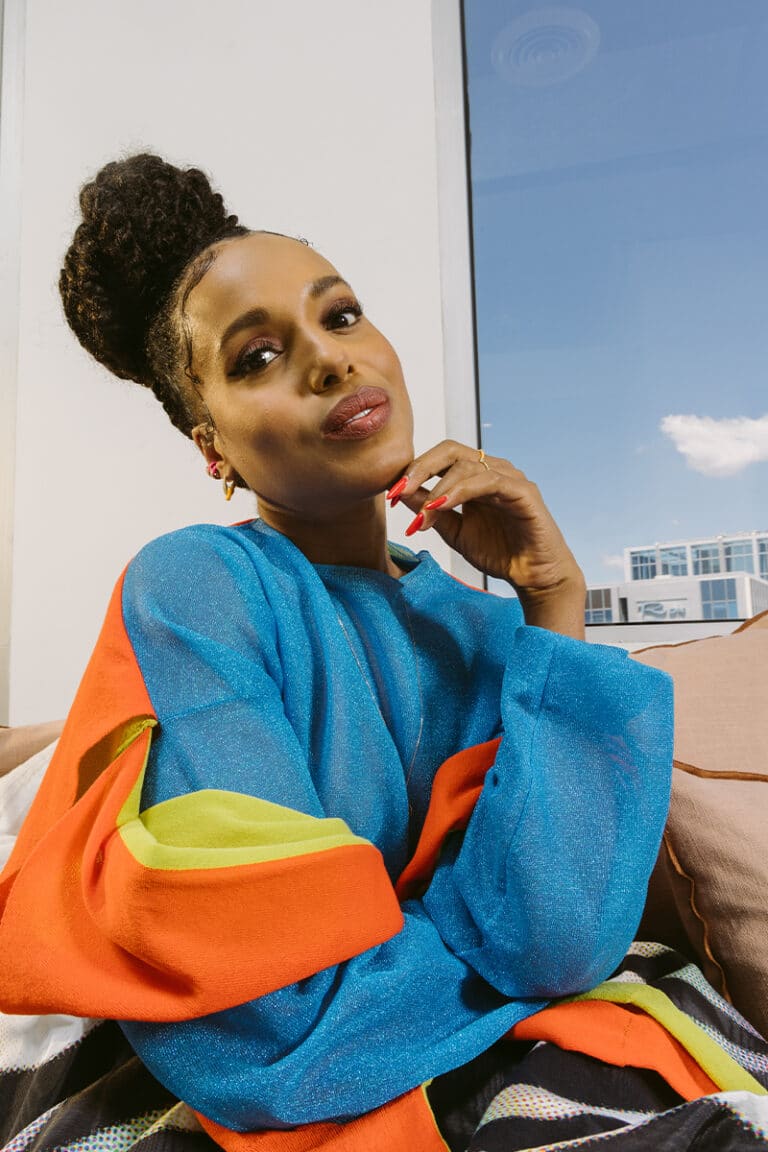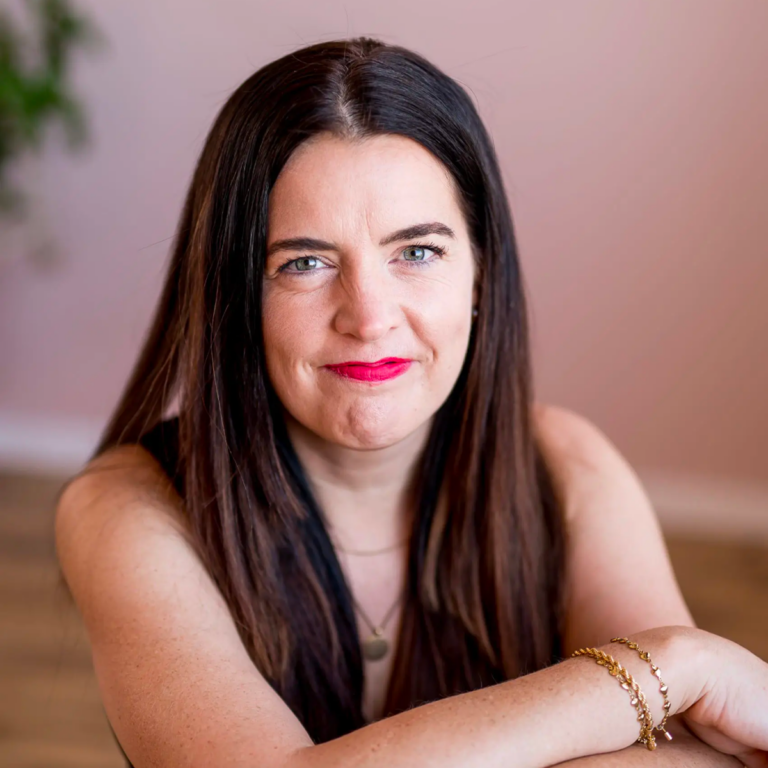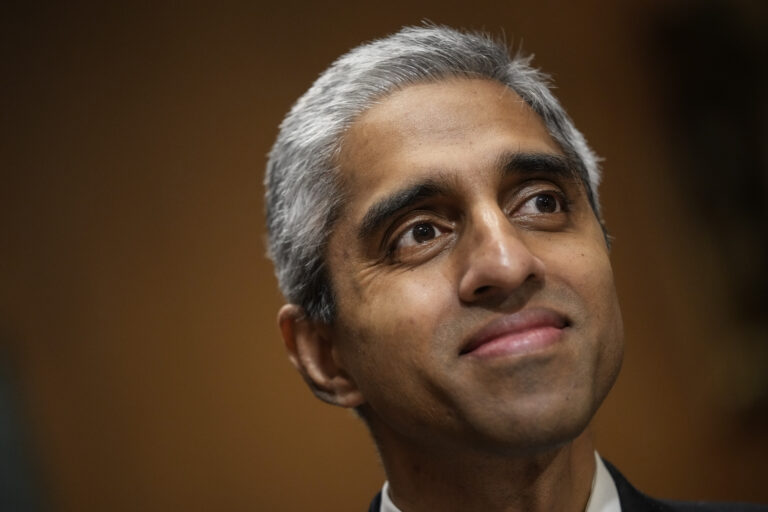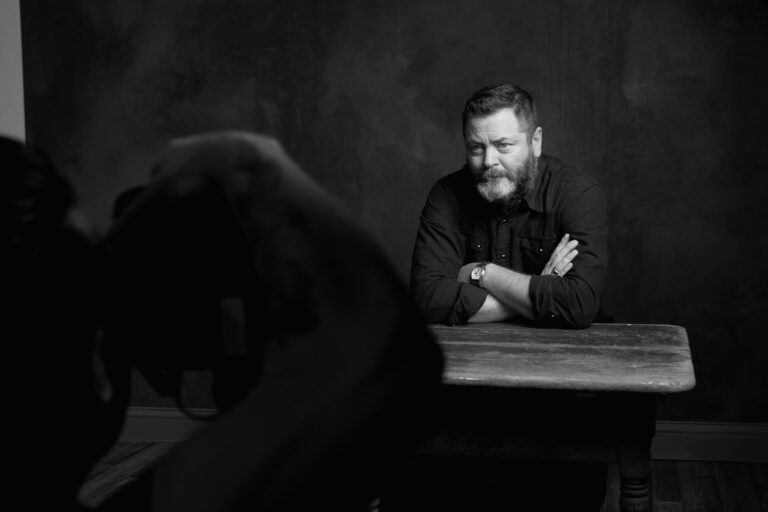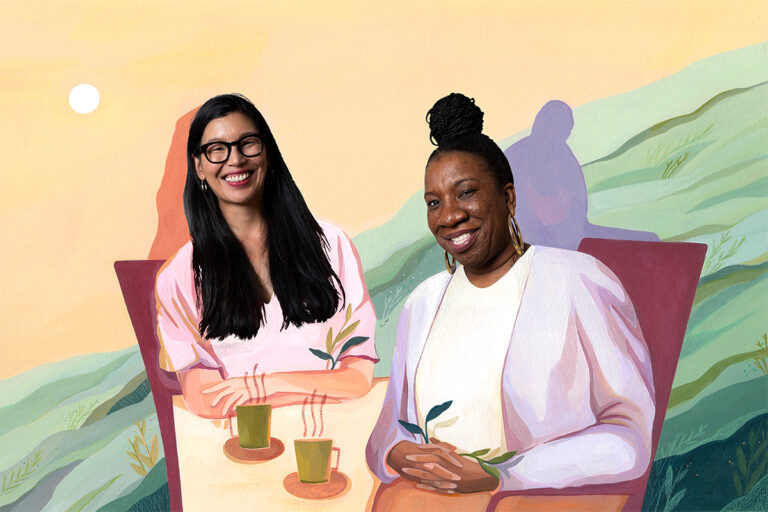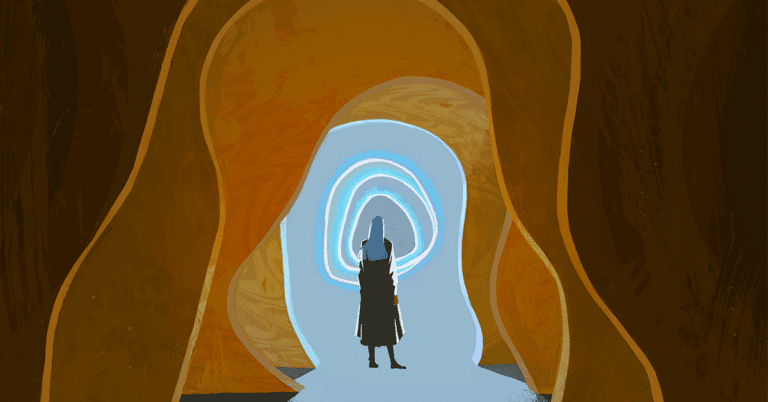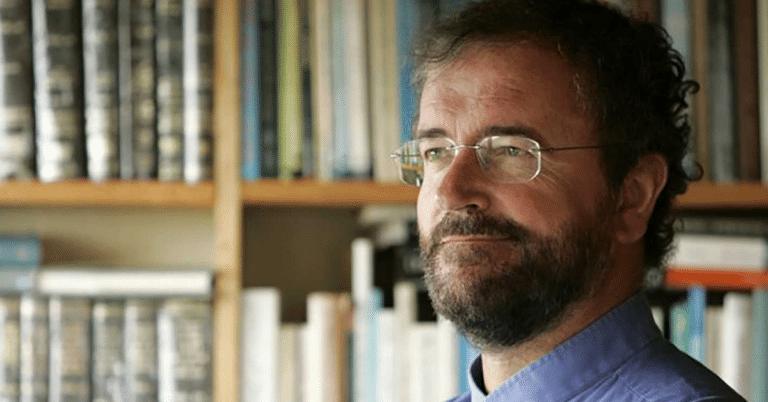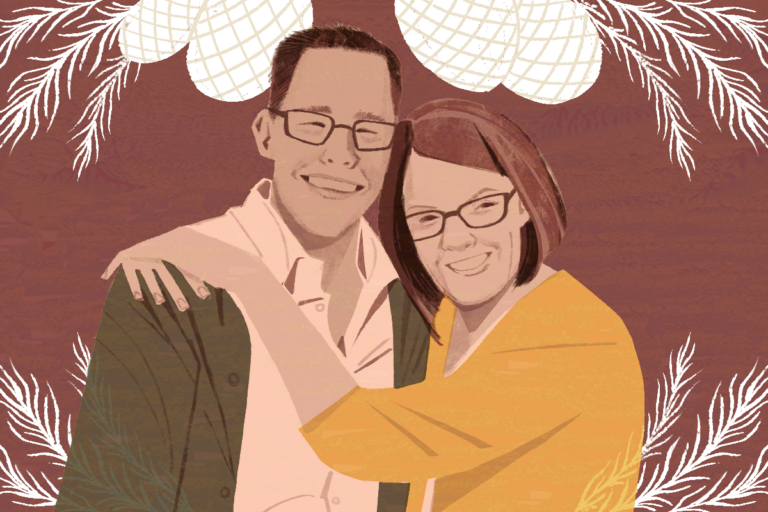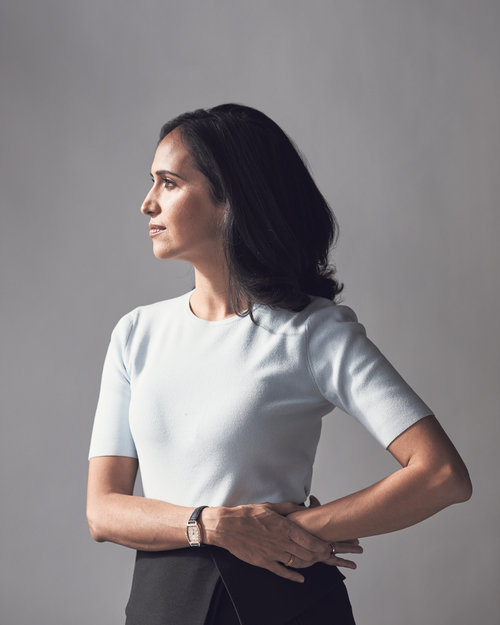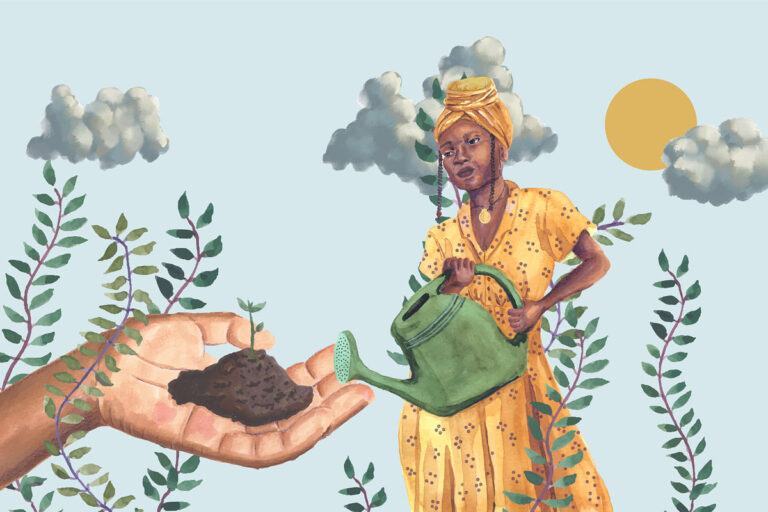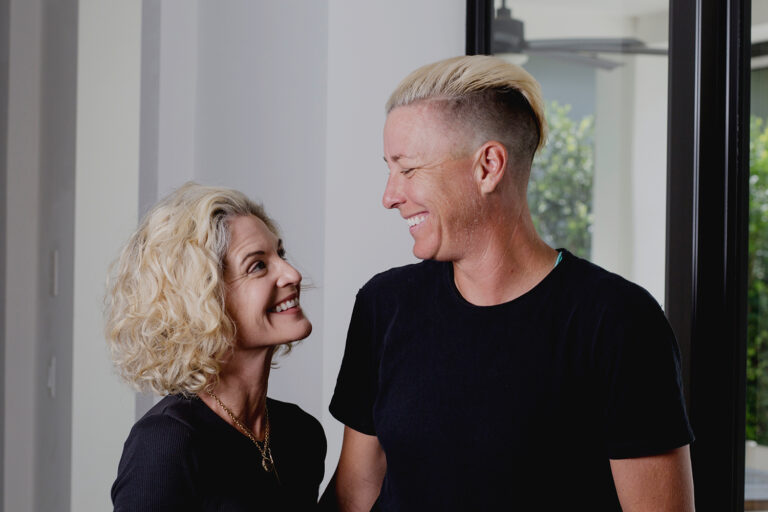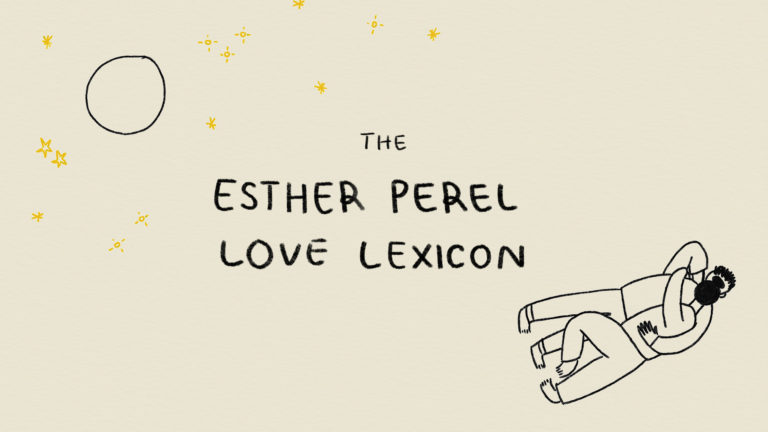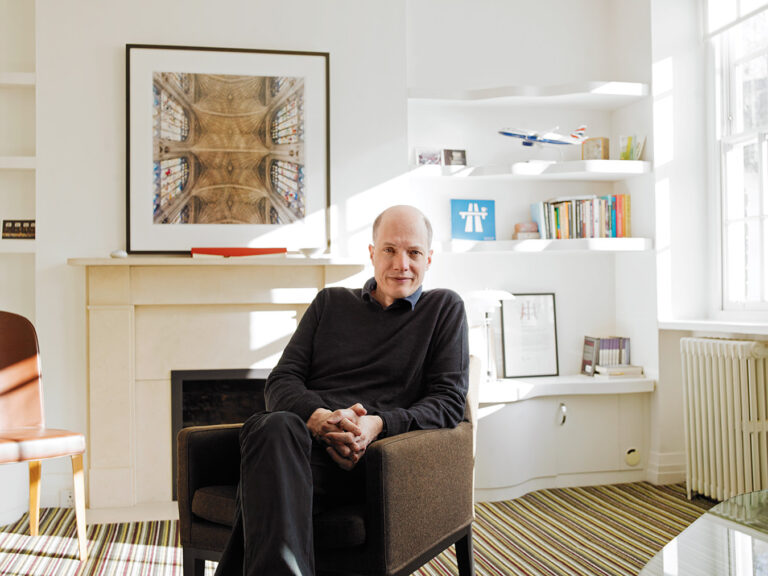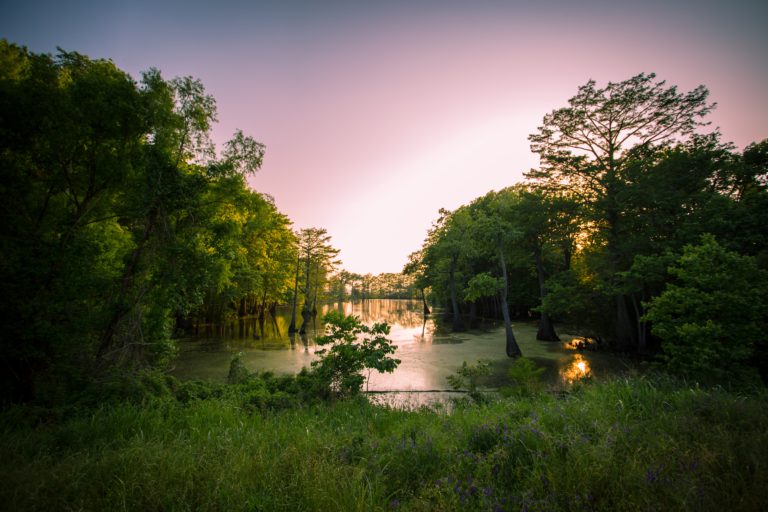We’d heard Derek Black, the former white-power heir apparent, interviewed before about his past, but never about the college friendships that changed him. After Derek’s ideology was outed at the New College of Florida, Matthew Stevenson (one of the only Orthodox Jews on campus) invited him to Shabbat dinner. What happened next is a roadmap for navigating some of the hardest and most important territory of our time.
Friendship & Relationships
Featured Items
Courage is born out of vulnerability, not strength. This finding of Brené Brown’s research on shame and “wholeheartedness” shook the perfectionist ground beneath her own feet. And now it’s inspiring millions to reconsider the way they live, parent, and navigate relations with members of the opposite gender.
View
- List View
- Standard View
- Grid View
34 Results
Filters
The wonderful civil rights elder Vincent Harding liked to look around the world for what he called “live human signposts” — human beings who embody ways of seeing and becoming and who point the way forward to the world we want to inhabit. And adrienne maree brown, who has inspired worlds of social creativity with her notions of “pleasure activism” and “emergent strategy,” is surely one of these.
We’re listening with new ears as she brings together so many of the threads that have recurred in this season of On Being: on looking the harsh complexity of this world full in the face while dancing with joy as life force and fuel and on keeping clear eyes on the reasons for ecological despair while giving oneself over to a loving apprenticeship with the natural world as teacher and guide. A love of visionary science fiction also finds a robust place in her work and this conversation. She altogether shines a light on an emerging ecosystem in our world over and against the drumbeat of what is fractured and breaking — the cultivation of old and new ways of seeing, towards a transformative wholeness of living.
Baratunde Thurston is a comedian, writer, and media entrepreneur. He has eyes open to the contradictions, strangeness, and beauty of being human. He looks for learning happening even amidst our hardest cultural tangles. And he intertwines all of this, innovatively and searchingly, with his lifelong joy in the natural world.
The kaleidoscopic view of life and love and the world that is Baratunde’s builds and builds in this conversation Krista had with him around the edges of the 2023 Aspen Ideas Festival — towards an exuberant glimpse of how we can all be more fully human and socially creative.
In this season of On Being and those to come, we are going to train the core human questions on the emerging “generative AI.” Beyond the hype and the doom, what is this new technology calling us to as human beings? What is our agency to shape it to human purpose, and how might it bring us — literally — to our senses? This inaugural conversation with Reid Hoffman is a wide and deep beginning foundation. He and Krista venture into unexpectedly relevant places, like the nature of friendship in human life, and what it would mean to create “contained, boundaried AI” — and Reid’s use of words like “delightful” and “elevating” as qualities we can impart to this technology which, as we’re hearing again and again, is going to change everything.
“Becoming other people” for a living, as Kerry Washington likes to describe her craft, turns out to be a revelatory lens on the high drama that is the human condition. As a “learning actor,” a kind of actor/anthropologist, she has brought elegance and moral rigor to all kinds of roles: as the uber-glamorous, tough-as-nails Olivia Pope on Scandal; as the wife of Idi Amin and the wife of Ray Charles; from Little Fires Everywhere to Django Unchained. Just after Scandal ended seven triumphant seasons, she starred on Broadway as Kendra, a jeans-clad mother in a Miami police station waiting to hear what has happened to her beloved son. Krista was in that audience, and saw how Kerry attended not just to her role on stage but to bringing a beautifully racially mixed audience to participating and reflecting together.
So this conversation has been a while in coming. It is rich with grace and surprising angles of insight — on the roles we all learn to play in the stories of the lives that we are given, and the evolution that is possible in how we assume those characters and leave them behind and grow them up.
This episode of On Being was produced with consideration of the ongoing SAG-AFTRA strike and with external legal guidance. In distributing this episode, we attest to our belief that no statements made involve promotion of struck work in violation of the SAG-AFTRA Strike Order.
We love the theologian Kate Bowler’s allergy to every platitude and her wisdom and wit about the strange and messy fullness of what it means to be in a human body. She’s best known for her 2018 book Everything Happens for a Reason (And Other Lies I’ve Loved) — a poetic and powerful reflection on learning at age 35 that she had Stage IV colon cancer.
From a reset on how to think about aging, to the new reality in our time of living with cancer as a chronic illness, to the telling of truths to our young, this beautiful conversation is full of the vividly whole humanity that Kate Bowler singularly embodies.
(Also, as you’ll hear, if she hadn’t become a theologian, she might have been a stand-up comedian.)
Krista and Kate spoke as part of the 2023 Aspen Ideas Festival.
We need a modicum of vitality to simply be alive in this time. And we’re in an enduringly tender place. The mental health crisis that is invoked all around, especially as we look to the young, is one manifestation of the gravity of the post-2020 world. How to name and honor this more openly? How to hold that together with the ways we’ve been given to learn and to grow? Who are we called to be moving forward? Dr. Vivek Murthy is a brilliant, wise, and kind companion in these questions. He’s a renowned physician and research scientist in his second tenure as U.S. Surgeon General. And for years, he’s been naming and investigating loneliness as a public health matter, including his own experience of that very human condition.
It is beyond rare to be in the presence of a person holding high governmental office who speaks about love with ease and dignity — and about the agency to be healers that is available to us all. There is so much here to walk away with, and into. This conversation quieted and touched a room full of raucous podcasters at the 2023 On Air Fest in Brooklyn.
There are many resources for mental health support. If you’re in the U.S., find some of them here.
February 23, 2023
Nick Offerman
Working with Wood, and the Meaning of Life
Nick Offerman has played many great characters, most famously Ron Swanson in Parks and Recreation, and he starred more recently in an astonishing episode of The Last of Us. But he is driven by passionate callings older and deeper than his public vocation as an actor and comedian. He works with wood, and he works with other people who work with their hands making beautiful, useful things. And this, it turns out, is also a primary source of his tethering in values. It’s a source of a spiritual thoughtfulness that runs through this conversation with Krista. So is his love and study of the farmer-poet Wendell Berry, whose audiobook The Need to Be Whole Nick just recorded.
This is a moving and edifying conversation that is also, not surprisingly, a lot of fun.
April 28, 2022
Pádraig Ó Tuama
“This fantastic argument of being alive”
Pádraig Ó Tuama is a friend, teacher, and colleague to the work of On Being. But before that was true, Krista took a revelatory trip to meet him at his home in Northern Ireland, a place that has known sectarianism and violent fracture and has evolved, not to perfection, yet to new life and once unimaginable repair and relationship. Our whole world screams of fracture, more now than when Krista sat with Pádraig in 2016. This conversation is a gentle, welcoming landing for pondering and befriending hard realities we are given. As the global educator Karen Murphy, another friend of On Being and of Pádraig, once said to Krista: “Let’s have the humility and the generosity to step back and learn from these places that have had the courage to look at themselves and look at where they’ve been and try to forge a new path with something that resembles ‘together’ … Right now we should be taking these stories and these examples and these places and filling our pockets and our lungs and our hearts and our minds with them and learning deeply.” And that’s what this hour with Pádraig invites.
The visionary, next-generation organizer Ai-jen Poo says this of Tarana Burke: “There are just so many layers of hope that she brings to the world and to people like me, to survivors, to all kinds of communities.” Ai-jen and Tarana are the conversation partners for this episode of The Future of Hope. And what a conversation it is. We listen in on a brilliant friendship that has powered and sustained two extraordinary women who are leading defining movements of this generation that call us to our highest humanity. Ai-jen spoke with Krista in 2020 for our episode, “This Is Our (Caring) Revolution,” and is back as host for this conversation. She has been long ahead of a cultural curve we are all on now — of seeing the urgent calling to update and transform not just how we value the caregiving workforce of millions, but how we value care itself as a society. Tarana founded the ‘me too.’ Movement. What you are about to hear is intimate, revelatory, and rooted in trust and care. It’s also an invitation to all of us, to imagine and build a more graceful way to remake the world.
February 17, 2022
Sharon Salzberg and Robert Thurman
Love Your Enemies? (Really?)
It’s a piece of deep psychological acuity, carried in many religious traditions: that each of us is defined as much by who our enemies are and how we treat them as by whom and what we love. In this episode, two legendary Buddhist teachers shine a light on the lofty ideal of loving your enemies and bring it down to earth. Across a half-century conversation and friendship, Sharon Salzberg and Robert Thurman have investigated the mind science behind this virtue and practice. They illuminate how to transmute the very real, very consequential and consuming energy of anger and hatred — and why love in fact can be a rational and pragmatic stance towards those who vex us. This is a conversation filled with laughter and friendship and with practical wisdom on how we relate to that which makes us feel embattled from without, and from within.
No conversation we’ve ever done has been more beloved than this one. The Irish poet, theologian, and philosopher insisted on beauty as a human calling. He had a very Celtic, lifelong fascination with the inner landscape of our lives and with what he called “the invisible world” that is constantly intertwining what we can know and see. This was one of the last interviews he gave before his unexpected death in 2008. But John O’Donohue’s voice and writings continue to bring ancient mystical wisdom to modern confusions and longings.
December 23, 2021
Jeff Chu
A Life of Holy Curiosity
In Friendship with Rachel Held Evans
Here we are in a religiously-infused season — and in a world in which more and more of us experience ourselves to be religious nomads, misfits, even refugees. This deep reality of our life together is often simplified in analyses of the decline of traditional religious identity, of the rise of the spiritual-but-not-religious. Yet there is abundantly, alongside all of that, a rising theological and liturgical searching, a passionate calling towards service that echoes the heart of the great traditions. This is nowhere more true than around the boundaries of Christianity. And no person has given more winsome voice to it than Rachel Held Evans, who died suddenly at the age of 37 in 2019. Now her dear friend, journalist and preacher Jeff Chu, has midwifed her unfinished last book, Wholehearted Faith, into the world. He’s Krista’s wonderful conversation partner this hour — articulating a spacious understanding of God and grief, searching and belonging, for this changed world Rachel did not live to see, but speaks to still.
September 30, 2021
Priya Parker
Remaking Gathering: Entering the Mess, Crossing the Thresholds
Priya Parker has become the voice of what it means to gather in this world we inhabit now. She is helping remake the “how” of coming together — and more importantly, the “why.” Long before the pandemic, she points out, we had fallen into rote forms for staff meetings, birthday parties, conferences, shared meals. Virtual or physical, this time of regathering offers a threshold we can decide to cross with imagination, purpose, and joy. This is a conversation with so much to walk away from and put immediately into practice.
“I’m entering into this next phase… with a great deal of curiosity and perhaps tenderness, wanting to hold each other tight, because I think that there are ramifications of last year that have yet to be felt.” Rev. Jen Bailey is a wise young pastor and social innovator, and a “friend of a different generation” of Krista. This conversation is a loving adventure in cross-generational mapmaking and care. Jen is a leader in a widening movement that is “healing the healers” — sustaining individuals, organizers, and communities for the long, life-giving transformations ahead.
This conversation came about in partnership with Encore.org.
Glennon Doyle’s book Untamed has been a sensation of 2020 and beyond, and now she’s launched a new podcast titled with words of hers that have become a cultural force: We Can Do Hard Things. Meanwhile her wife, the soccer icon Abby Wambach, has her own bestselling books and is hosting a new tv show – Abby’s Places on ESPN+. Krista spoke with them before they were quite so much in the public eye together, and it’s a window into the passions that brought them here. They sat together in Seattle at the 2018 summit of Women Moving Millions, a consortium of women testing the meaning and boundaries of philanthropy. And courage was the theme of the day.
The psychotherapist Esther Perel has changed our discourse about sexuality and coupledom with her TED talks, her books, and her podcast, Where Should We Begin? Episode after episode lays bare the theater of relationship, which is also the drama of being human. Her insights speak to the flip side of social isolation — the intense experience many have now had of togetherness. And her deep understanding of “erotic intelligence” feels so interesting as we grapple with emergent dynamics of the human condition writ large — coupled or not, and both intimate and societal.
February 11, 2021
Alain de Botton
The True Hard Work of Love and Relationships
As people, and as a culture, Alain de Botton says, we would be much saner and happier if we reexamined our very view of love. His New York Times essay, “Why You Will Marry the Wrong Person,” is one of their most-read articles in recent years, and this is one of the most popular episodes we’ve ever created. We offer up the anchoring truths he shares amidst a pandemic that has stretched all of our sanity — and tested the mettle of love in every relationship.
After Arlie Hochschild published her book Strangers in Their Own Land: Anger and Mourning on the American Right, just before the 2016 election, it came to feel prescient. And the conversation Krista had with her in 2018 has now come to point straight to the heart of 2020 — a year in which many of us might say we feel like strangers in our own land and in our own world. Hochschild created a field within sociology looking at the social impact of emotion. She explains how our stories and truths — what we try to debate as issues in our social and political lives — are felt, not merely factual. And she shares why, as a matter of pragmatism, we have to take emotion seriously and do what feels unnatural: get curious and caring about the other side.
The Pause
Join our constellation of listening and living.
The Pause is a monthly Saturday morning companion to all things On Being, with heads-up on new episodes, special offerings, event invitations, recommendations, and reflections from Krista all year round.
Search results for “”
View
- List View
- Standard View
- Grid View
Filters
